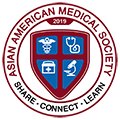The book Survival of the sickest is written by Sharon Moalem, an award-winning scientist and physician, in 2007. The book demonstrates three different themes--- "how illnesses can sometimes be advantageous", "why certain conditions developed and what they were fighting against", and "understand how to better treat those conditions without offsetting the advantages that the diseases offered".
Moalem indicates that being able to survive deadly diseases in the short term is a necessary tradeoff to having a condition that might eventually cause harm because those conditions allow enough time for humans to reproduce and pass on those inherited traits. Moalem’s first example of a disease that once provided short-term benefits is called hemochromatosis, a condition that causes iron to build up in the body. Hemochromatosis is inherited, particularly in people of Western European descent; if unchecked, it can lead to liver failure, heart failure, diabetes, arthritis, and cancer. The inheriting of hemochromatosis actually related to a huge disaster thousands of years ago, in 1347, the Bubonic Plague killed one-third and one-half of the population was killed, more than 25 million people.
In 1348 as Agnolo di Tura wrote, "Father abandoned child, wife husband, one brother another, for this illness seemed to strike through the breath and sight. And so they died. And none could be found to bury the dead for money or friendship. Members of a household brought their dead to a ditch as best they could, without the priest, without divine offices . . ."
When the Bubonic Plague began in 1347, people who had hemochromatosis were more likely to survive it, because the bacteria were unable to access their iron and grow stronger. Thus, people who have inherited the gene for hemochromatosis may have done so because it allowed their ancestors to survive in the short term, even if it would harm them in the long term.
There is a similar tradeoff with people who have a condition called favism, which is a condition that prevents people from clearing free radicals in their bloodstream. This results in severe anaemia. However, favism helps to combat malaria, because the parasitic protozoa that cause malaria can only infect normal, healthy red blood cells. Thus, those with favism, who do not have healthy red blood cells, are more likely to survive in their malaria-prevalent environments. So while anaemia can be deadly, favism and the resulting anaemia actually prevent people from dying from malaria and allows them to pass on those genes.
Even ageing is an example of our bodies protecting us from something more deadly: cancer. Normally, our cells are only able to reproduce a specific number of times before genetic information begins to be lost. This prevents cells from becoming cancerous and reproducing an infinite number of times, unchecked. But as a result of these built-in controls, our cells gradually hit the limit of the number of times they can replicate, and our bodies begin to break down as a result.
Even though some of the experiments weren’t explained that well, this book is still very worth reading, not like the usual science book we think which is boring and full of data and experiments, this book uses many specific historical events and scientific research to display the evolution of the certain disease and the reason why that disease was preserved during the span of evolution. It is an astonishing book by showing the long history of disease and a perfect book for people who are not professional in the scientific field a whole new perspective to view disease.
